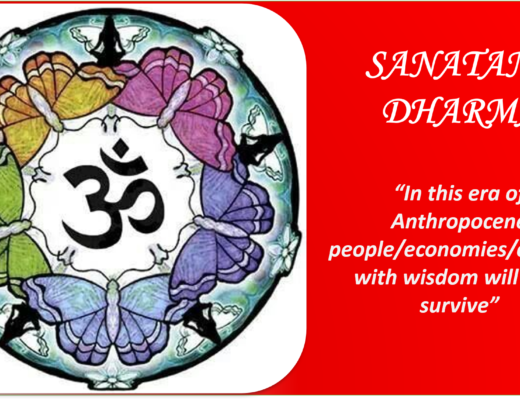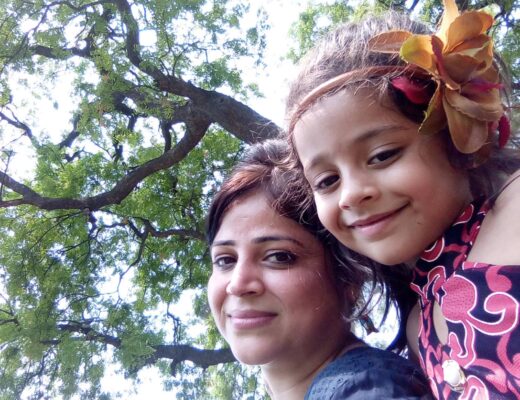by Prof. (Dr.) Arnab Bose, Curator Kesari Utsav
In a report of the United Nations (UN 2002) named ‘The social and cultural value of place names’, it highlighted the importance of place names from across all kinds of stakeholders. The report also illustrated an impactful work (NORNA 1977) which came to emphasise that –
“Place-names are an important part of our geographical and cultural environment. They identify geographical entities of different kinds and represent irreplaceable cultural values of vital significance to people’s sense of well-being and feeling at home. Place-names are therefore of major social importance. Society must also bear the responsibility for taking care of the place-name heritage and seeing to it that place-name planning is carried out in such a way that the functionality of the place-name stock is preserved and the cultural heritage is protected in a rapidly changing society.”
The above is a Eurocentric or even Nordic perspective, however there is a sense that heritage, culture and well being of people are connected to place-names.
In India, irrespective if we agree, or not, that pure emic narratives are hard to find as our own emic ontologies and epistemologies have been de-emphasised; we will resonate that place names do impact the well being of people. That is why various place names have been changed by a gamut of political parties belonging to a wide spectrum say Calcutta to Kolkata by left political parties to Bombay to Mumbai by political parties on the other side of the ideological spectrum. Interestingly, there is an argument that Mumbai is a derivative of Mumba Devi, and Kolkata is a derivative of Ma Kali, both the place names pay homage to their soil’s resident mother Goddess. This latter makes the place-name not only a function of well-being but also civilizational.
Any place in India, with the ending ‘abad’ is a Persian origin term meaning a dwelling place of, so say Ghaziabad is the dwelling place of Ghazi. And, who is Ghazi, web search on Google will yield the meaning as – a Muslim fighter against non-Muslims. (screenshot below- Exhibit 1a, accessed 28th January 2023; Exhibit 1b, accessed 25th June 2023). Also do note that especially in North India place-names are disproportionately Persianised. (Exhibit 2, needs review – taken from twitter feed, Agnel 2023). Though Exhibit 2 is not a scholarly work, and a twitter (social media) post, it does resonate with on ground everyday lives as a sense of disdain of a ‘thousand years of foreign rule’ on the Gangetic plains of India as Prime Minister Modi reverberated in United States on his visit in 2023 (Scroll 2023).
Exhibit 1a

Exhibit 1b

Exhibit 2

Why would a place-name in India honour and perpetuate most possibly a bizarre colonial hangover and strange subservience is quite excruciating and goes against the secular and dharmic fabric of India. There is no question whether the place should be renamed; the deliberation required will be with respect to what the name should be.
Here, one answer is Kesari, the resident deity of the soil. There is already a Kesari Mata Mandir, and the District Magistrate web page on the history of Ghaziabad notes the name of a mound Kaseri situated on the bank of river Hindon, 2 km north from Mohan Nagar shows that civilization was developed here in 2500 B.C.
Given the civilizational value that India places on Kesari, and the evidence that the soil here is related for the longest times to the name Kesari, there should be little doubt this soil should be named after the resident mother Goddess, just like Kolkata and Mumbai.
References:
DM 2023; History of Ghaziabad | ghaziabad | India; https://ghaziabad.nic.in/en/history-of-ghaziabad/
NORNA 1977; NORNA-rapporter 13. Ortnamnsvård och ortnamnsplanering. Handlingar från NORNA:s femte symposium på Hanaholmen 23–25.9.1977. Red. av Kurt Zilliacus. [Place-name care and place-name planning. Proceedings of NORNA’s fifth symposium at Hanaholmen 23–25.9.1977. Ed. by Kurt Zilliacus]. Uppsala 1978: NORNA förlaget
Scroll 2023; India got freedom after 1,000 years of foreign rule, Narendra Modi tells US Congress (scroll.in) (accessed 25th June 2023)
UN 2002; 8th_UNCSGN_econf.94_crp.106.pdf : https://unstats.un.org/unsd/geoinfo/UNGEGN/docs/8th-uncsgn-docs/crp/8th_UNCSGN_econf.94_crp.106.pdf






No Comments